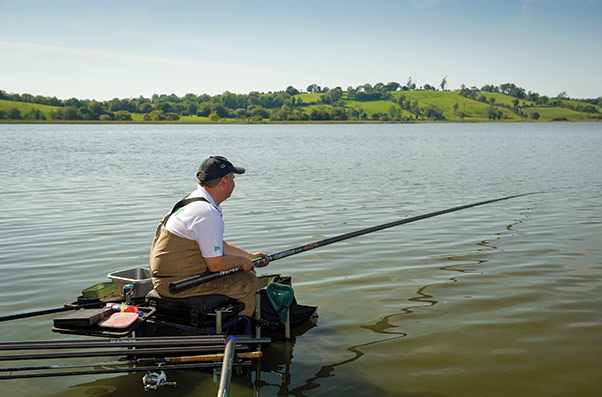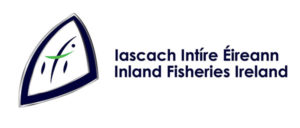The National Strategy for Angling Development


The agency’s CEO, Dr Ciaran Byrne, explains Ireland’s angling tradition has the potential to drive tourism and foster resilient communities. The NSAD aims to develop our angling resource sustainably through balancing the economic, environmental, social and cultural aspects of any development in line with Inland Fisheries Ireland’s responsibilities for the protection, management, conservation and development of Ireland’s inland fisheries and sea angling resources.
The angling sector contributes over €800 million to the Irish economy every year and supports over 11,000 Irish jobs, often in rural communities where there are fewer job opportunities available. A 2015 study conducted by Millward Brown found that over 273,000 Irish adults identified themselves as ‘anglers’ and a further 50,000 had gone fishing ‘in the last year’. Furthermore, some 163,000 overseas visitors went fishing during their stay in Ireland in 2015.
In terms of tourism, the proportion of visitors engaging in angling has remained at approximately 2 per cent over the last decade. The average length of stay for tourist anglers is 11 nights, 25 per cent longer than average tourists. In addition, tourist anglers spend more, €1,027 compared to €832 average spend per trip. A 2013 study conducted by Tourism Development International found that tourists come to Ireland in particular to fish due to the quality of fishing, the scenery and Ireland’s hospitality and friendliness.
Recreational fishing, or angling, is one of the few forms of Irish outdoor recreation that can be enjoyed regardless of age, ability or social status. Angling incorporates proven therapeutic engagement and contact with ‘blue-green space’ and as a consequence helps maintain positive mental health, provides stress relief and has a profound influence on long term health outcomes. It provides a rich social world that facilitates the relationship building, connection and participation in social life essential to securing health and wellbeing. It incorporates a range of physical activity levels and encourages activity amongst the inactive, those with ill health and older age groups who may not participate in other sports.
IFI’s role is to conserve, protect, develop, manage and promote Ireland’s inland fisheries and sea angling resource. Following significant research and consultation Inland Fisheries Ireland launched the National Strategy for Angling Development (NSAD) in November 2015. The NSAD is the first comprehensive national framework for the development of Ireland’s angling resource. Its aim, in line with the mission of IFI, is to provide an accessible and sustainable inland fisheries and sea angling resource for all.
The NSAD identifies three strategic objectives that are all underpinned by the conservation and protection responsibilities of IFI. The strategy aims to ensure that Ireland’s fish stocks and angling infrastructure are protected and enhanced with a view to ensuring a sustainable habitat and delivering the economic, health and recreational benefits they offer to communities across Ireland.
The strategic objectives of the NSAD are:
- making angling accessible and attractive through information, infrastructure and support;
- tourism development through promotion of our angling resource; and
- recognition of angling as a key leisure and recreation pursuit.
These three objectives are underpinned by Inland Fisheries Ireland’s central role of protection and conservation of Ireland’s fisheries resource.
Angling development and conservation projects
In 2016, IFI ran a funding scheme for small capital grants projects, it awarded €500,000 of funding to 50 projects across 19 counties. Forty-nine of these projects were stakeholder led. The purpose of this scheme was to improve access to angling and ensure that projects delivered on the objectives of the NSAD. With over 100 applications in less than six weeks, this showed significant appetite in the sector for in angling development and conservation projects.
Following another overwhelming round of applications in 2017, €1.5 million in grant funding for the NSAD was awarded to 85 stakeholder led angling development and conservation projects. In addition, almost €400,000 of Inland Fisheries Ireland’s budget was allocated for projects (largely IFI-led) aimed at delivering on the NSAD.
In December 2017, an additional €200,000 was awarded under the Salmon Conservation Fund, 10 of the 16 projects were stakeholder led. Funds generated from the sale of salmon angling and commercial fishing licences are reinvested in projects aimed specifically at promoting the recovery of salmon stocks and habitats.
The projects that received funding are located in 23 counties. They include fisheries habitat conservation projects as well as the provision of infrastructure and equipment to allow for improved access to angling. Many of these projects aim to attract increased numbers of tourist anglers.
In line with requirements for public funding schemes, all applications for funding go through a rigorous evaluation process to ensure that only projects that meet the objectives of the funding scheme are awarded funding. In addition, IFI has developed an environmental assessment procedure to ensure that projects do not negatively impact on the environment. Each project is reviewed by an external environmental expert to ensure this is the case.
IFI recognises the difficulty that community and voluntary clubs have in meeting requirements associated with grant aided projects and have appointed Project Officers to work with angling clubs to enable them to deliver on their projects. A key element of the NSAD is to build capability and improve governance across the sector, appointing these project animators is a significant step in realising this goal and also addresses the issues and challenges raised by stakeholders at the NSAD roadshows held in 2017.
What would success look like?
Rural benefit: the NSAD has the potential to deliver considerable benefits in terms of employment, tourism and health and wellbeing, particularly in rural areas. Effective and sustainable implementation of the NSAD, delivered together with local and national stakeholders, will ensure stability of existing jobs and businesses reliant on angling, and the creation of new jobs as the economic impact of angling grows.

Sustainability: the NSAD aims to develop our angling resource sustainably through balancing the economic, environmental, social and cultural aspects of any development in line with Inland Fisheries Ireland’s responsibilities for the protection, management, conservation and development of Ireland’s inland fisheries and sea angling resources.
Outdoor recreation: angling is a key part of Ireland’s outdoor recreation offering alongside the likes of hill walking, cycling, running and kayaking. This stimulates innovation and entrepreneurship in rural areas and can help to compensate and reverse the decline in shops and services experienced in many rural towns and villages.
Socio-economic impact: successful implementation of the NSAD will lead to significant opportunities for new enterprise and employment, particularly for rural communities. Should future figures for overseas anglers reach the historical figures estimated for the year 1999, the increase in associated economic contribution would approach €53 million annually and support an extra 1,400 jobs. In addition, an increase in domestic angler participation of 0.5 per cent would increase economic contribution by approximately €43 million annually and support an additional 420 jobs.
Case study
River Easkey Anglers Association secured initial funding of €10,000 through the IFI Capital Grants Scheme in 2016 to undertake an Angling Access Project on the River Easkey at Dromore West, County Sligo, an excellent game fishery. The overall project aim was to provide suitable angling infrastructure to allow easier and safer access by anglers to the river, thereby encouraging increased numbers of anglers. This type of work includes installation of angling stiles, drain crossings, footbridges, walkways and rail fencing to replace the dangerous access routes through drainage ditches. Much of this work is undertaken using plastic wood, a maintenance free and more durable product than wood. This project represents Phase One of larger project developed by the club. A further €13,500 was awarded for Phase Two of this project through the NSAD Funding Round 2017, the club aim to deliver this piece of work during 2018. Phasing of large scale projects of this nature provide easier to manage projects for clubs to undertake and reduces the risks associated with the project.
 For more information:
For more information:
T: +353 (0)1 8842 600
E: info@fisheriesireland.ie
W: www.fisheriesireland.ie





